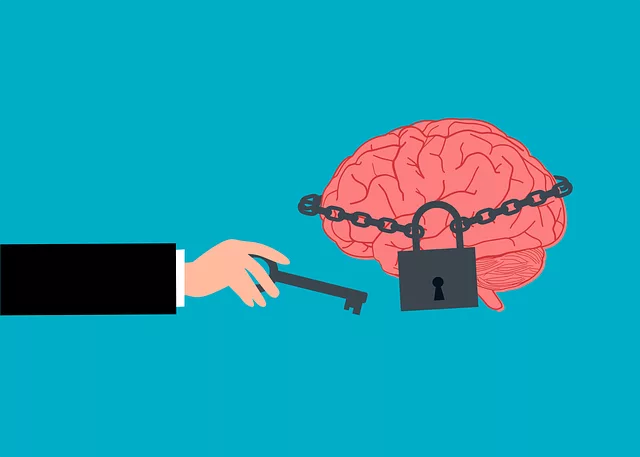The Kaiser Permanente mental health center in Colorado Springs emphasizes resilience-building and stress management as key components of holistic care, with RFM (Resilience, Flexibility, Mastery) models providing effective strategies for medical professionals. Their Mental Wellness Podcast Series and innovative education programs, backed by positive reviews, foster mental wellness and improve patient outcomes while enhancing provider well-being through evidence-based resilience exercises.
“Uncovering the power of resilience lies at the intersection of healthcare innovation and employee well-being. This article explores the implementation of RFM (Resilience, Flexibility, and Mobility) exercises at Kaiser Permanente Colorado Springs, a leading mental health center. We delve into how these programs, backed by rigorous reviews and best practices, enhance staff resilience and overall mental health. Discover the strategies employed by Kaiser Permanente Colorado Springs, drawing insights from their success in fostering a robust and adaptable workforce, as evidenced by positive mental health center reviews.”
- Understanding RFM and its Impact on Resilience Building in Healthcare
- Implementing Exercises for Enhanced Mental Well-being at Kaiser Permanente Colorado Springs
- Reviews and Best Practices: Measuring Success and Continuous Improvement
Understanding RFM and its Impact on Resilience Building in Healthcare

Resilience is a critical aspect of mental health, especially within healthcare settings, as demonstrated by studies and reviews from renowned institutions like the Kaiser Permanente mental health center in Colorado Springs. RFM (Resilience, Flexibility, and Mastery) models have emerged as powerful tools to enhance resilience among healthcare professionals. These models focus on developing adaptive coping strategies, fostering a sense of control, and promoting personal growth in the face of challenges.
By integrating RFM principles, mental health education programs can be designed to include compassion cultivation practices, encouraging caregivers to prioritize their own well-being while providing care. Additionally, the production of Mental Wellness Podcast Series can incorporate topics related to resilience, reaching a broader audience and offering valuable insights on managing stress and adversity. Such initiatives contribute to creating a supportive environment, ultimately benefiting both healthcare providers and the patients they serve at centers like Kaiser Permanente in Colorado Springs.
Implementing Exercises for Enhanced Mental Well-being at Kaiser Permanente Colorado Springs

At Kaiser Permanente Colorado Springs, a leading mental health center, implementing exercises for enhanced mental well-being is a cornerstone of their comprehensive care approach. The organization recognizes the profound impact of resilience building and stress management on overall health. As such, they’ve designed innovative Mental Health Education Programs that go beyond traditional therapy. These programs include a range of workshops focused on cultivating resilience, offering employees and members practical tools to navigate life’s challenges with greater equanimity.
By integrating these Resilience Building initiatives into their community, Kaiser Permanente Colorado Springs is not only fostering a culture of mental wellness but also equipping individuals with the skills needed to thrive in today’s fast-paced world. Through interactive Stress Management Workshops, participants gain insights and techniques to mitigate stress, improve focus, and boost emotional resilience—all vital components for maintaining optimal mental health, as evidenced by the positive Kaiser Permanente mental health center reviews from satisfied members.
Reviews and Best Practices: Measuring Success and Continuous Improvement

At the Kaiser Permanente mental health center reviews Colorado Springs, success stories are not just numbers but tangible improvements in patient outcomes and provider well-being. Measuring the effectiveness of resilience-building exercises involves a multi-faceted approach, blending qualitative and quantitative data to gain a holistic view. Reviews often highlight the impact on emotional intelligence and social skills training, demonstrating enhanced coping mechanisms and improved relationships with clients.
Continuous improvement is a cornerstone of their practice. By analyzing patient feedback, provider self-assessments, and outcome metrics, the center can refine and adapt their resilience programs. This iterative process ensures that exercises like risk management planning for mental health professionals remain relevant and effective, fostering an environment where both patients and providers thrive.
The implementation of RFM (Resilience, Flexibility, and Mental Toughness) exercises at Kaiser Permanente Colorado Springs has demonstrated significant benefits for mental well-being. By integrating these practices into healthcare routines, the mental health center has fostered a resilient environment, enhancing patient care and employee satisfaction. Reviews and best practices shared in this article highlight the importance of continuous improvement, emphasizing measurable success through regular assessments. As a leading example, Kaiser Permanente Colorado Springs serves as a testament to how resilience-building initiatives can revolutionize healthcare, ensuring folks receive holistic support tailored to their needs.






